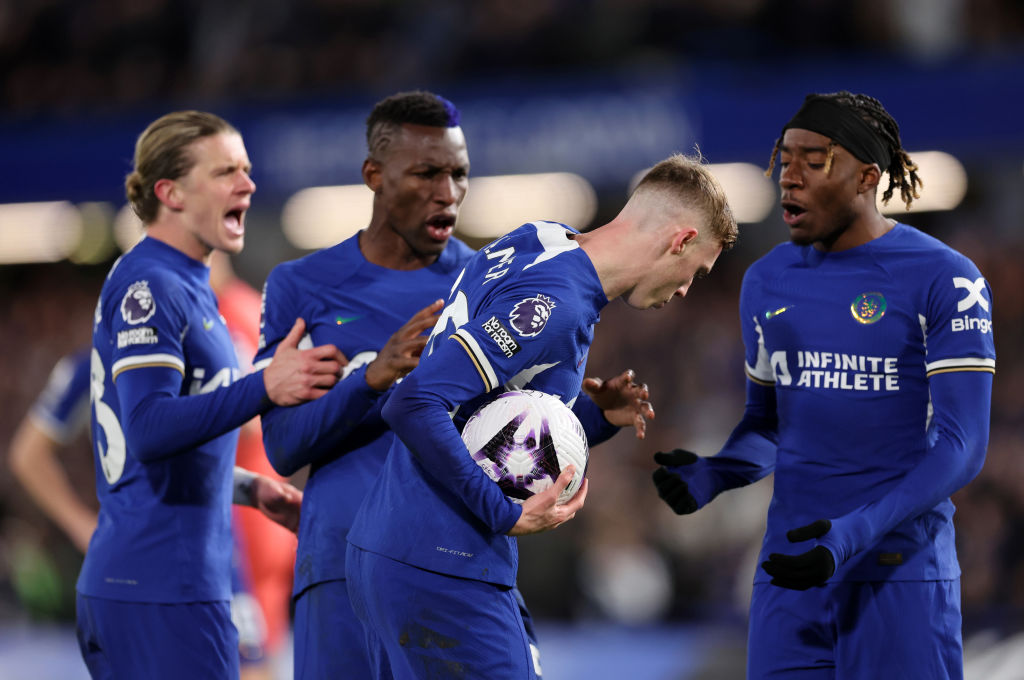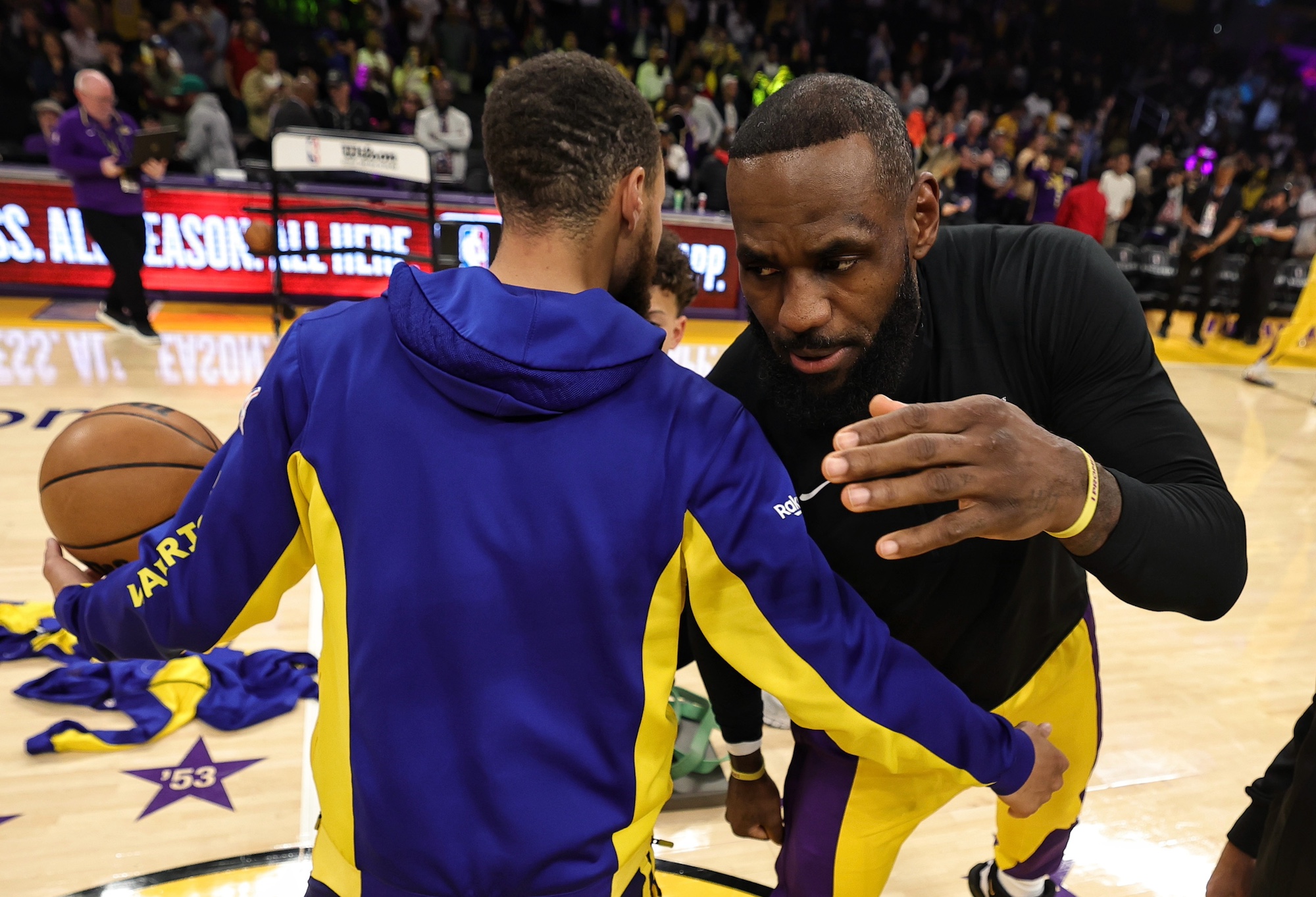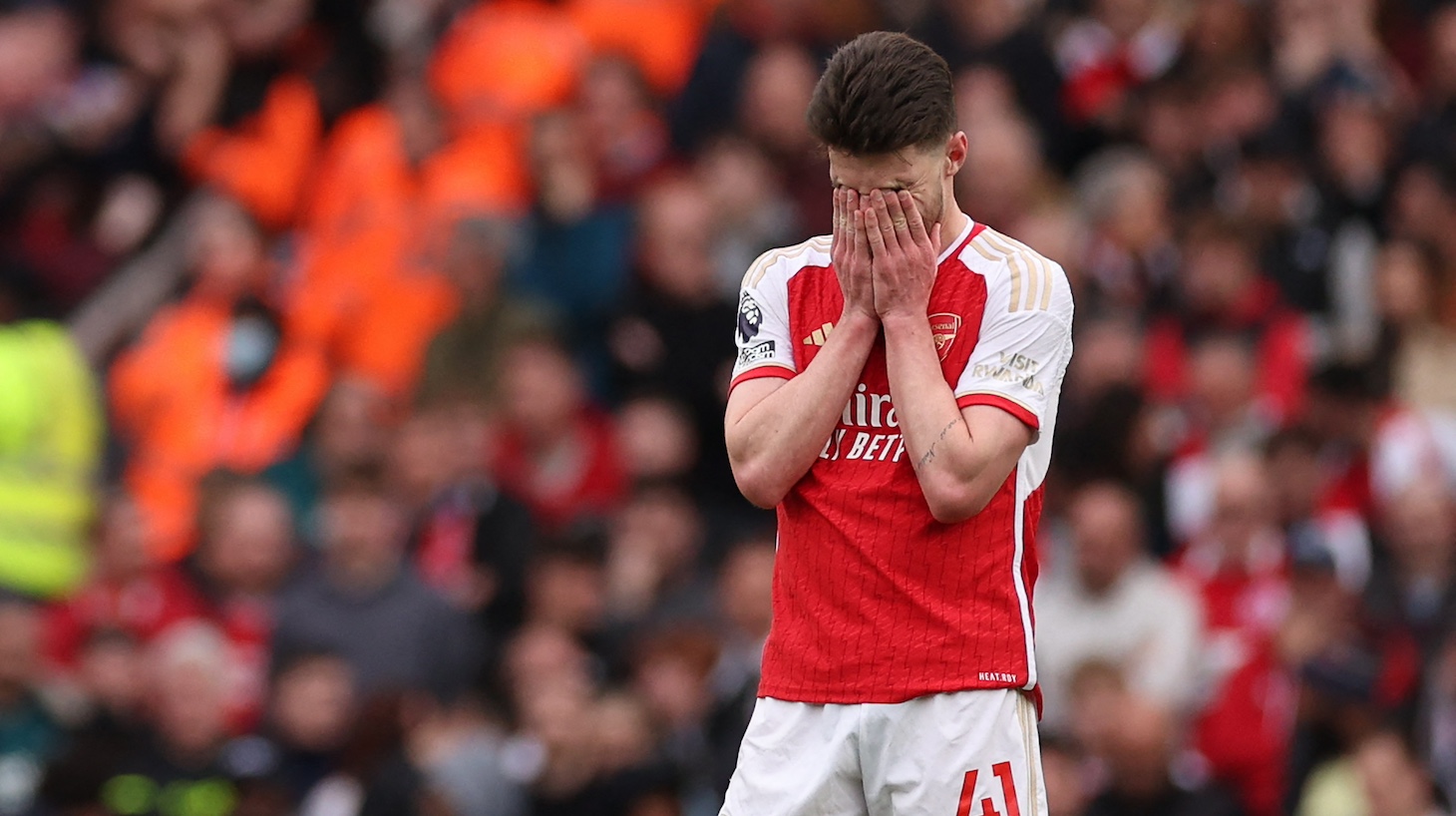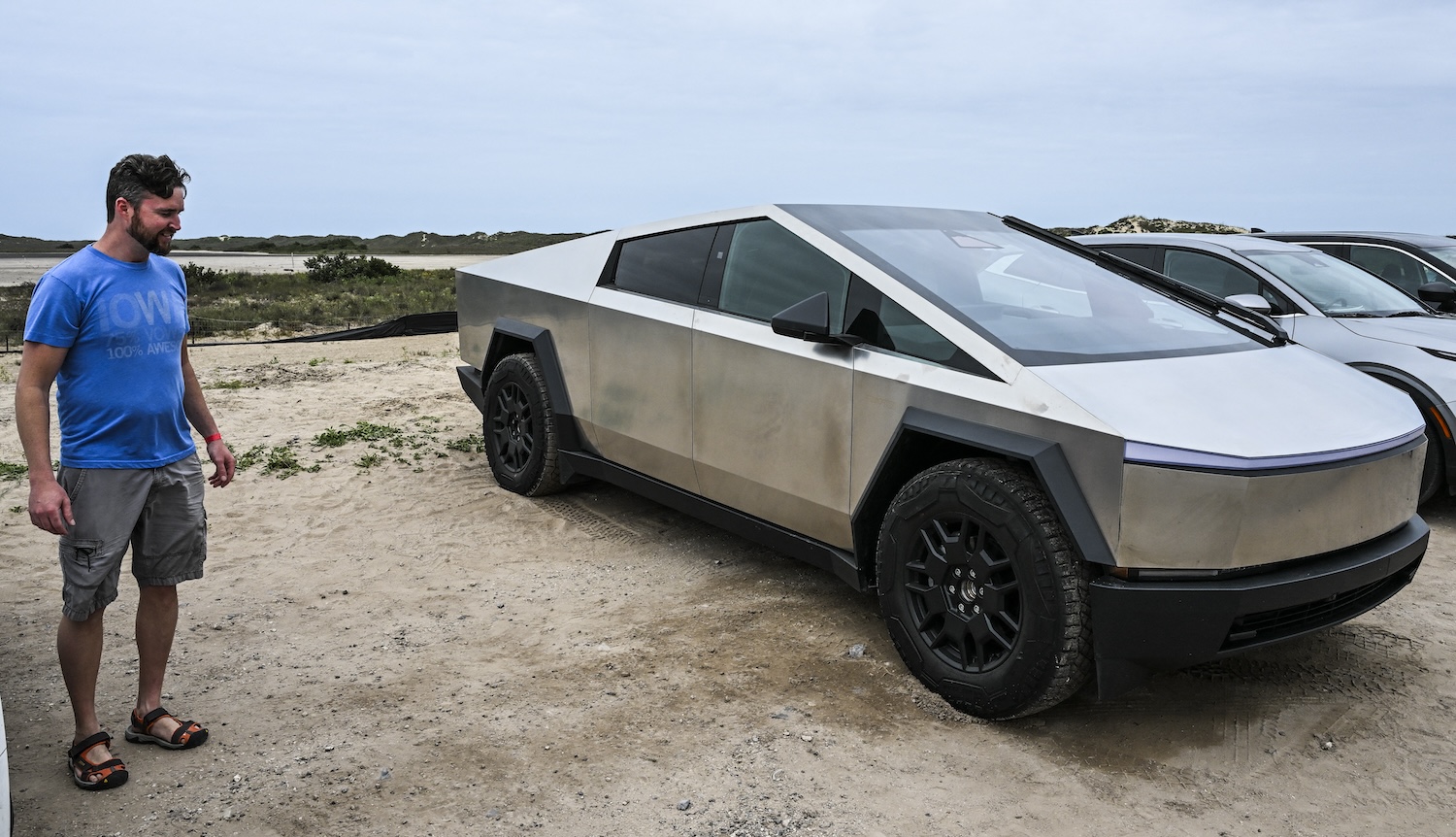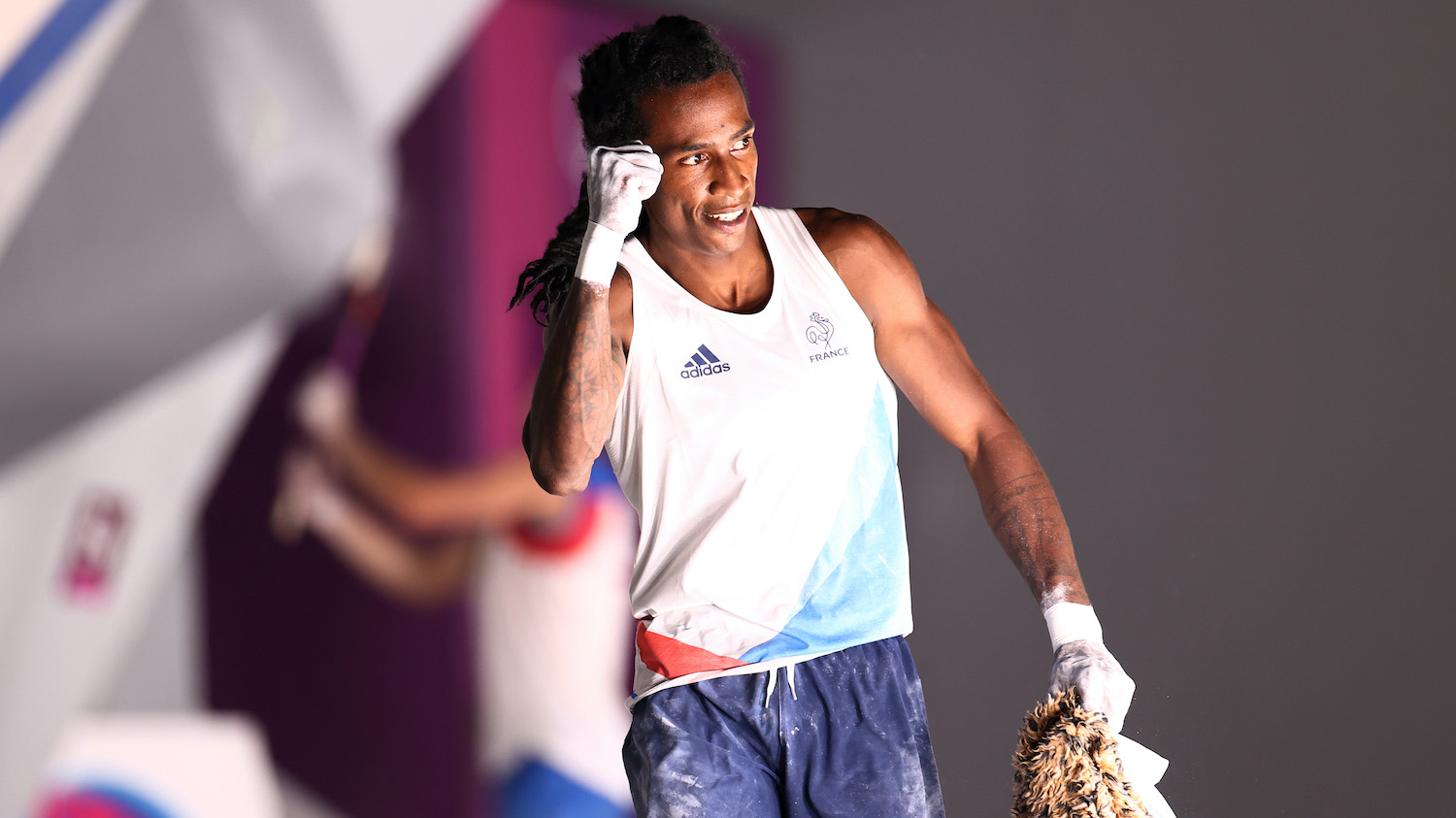
Climbing finally made its Olympic debut this week, and while I'm biased as a climber, it's been easily the most exciting of the new sports. Speed climbing is gimmicky and its inclusion in the combined format is baffling, though theatrically speaking, it has made for phenomenal television. Bouldering has four climbers competing alongside each other at once, all straining to make acutely demanding moves. The three-act structure of Olympic sport climbing is capped by a fittingly dramatic finale, the slow-burn and increasing difficulty of lead climbing, which was made especially brutal by the unforgiving Tokyo heat. Both men's and women's finals are set, and though Americans Colin Duffy, Nathaniel Coleman, and Brooke Raboutou all made it through, two brothers from France stole the show.
Neither Bassa nor Mickael Mawem came to Tokyo as medal favorites, though each French climber won one of the three qualifying events and Mickael qualified with the top overall score. The Mawems run a delightful joint Instagram account that showcases their outlandish feats of strength, brotherly mischief, and occasional brotherly feats of strength. They entered the French national climbing program relatively late, and while some of their competitors were grinding on the competitive circuit, they competed on Netflix's Ultimate Beastmaster. Along with Duffy's balanced performance, the Mawems showing up and crushing everyone was the surprise of the men's qualifiers. They are not as well-rounded as Tomoa Narasaki, not as experienced on real rock as Adam Ondra, and both are north of 30 years old (Bassa is more than twice as old as Duffy), but they thrived in the inhospitable conditions.
Bassa won the speed round with a blistering 5.45-second time, which was a personal best and enough to squeeze him into the final despite two near-last-place finishes in the other disciplines. Unfortunately, the reason he finished so poorly is the same reason he won't compete in the final: He appeared to suffer a nasty biceps tendon injury while reaching for a hold. Still, his speed performance was tremendous, and it's a real treat to watch someone conquer the speed wall with this level of fluidity.
here's bassa mawem's first heat btw, so you get an idea of how fast speed climbing is. that wall's at a 5° overhang too, and he's the oldest competitor at 36 pic.twitter.com/pCr5vHqkGx
— sport climbing aficionado commonly known as sasha (@nickelbackstrom) August 3, 2021
Bassa is one of the very best speed climbers in the world, so his new Olympic record wasn't a shocker. Nobody saw Mickael winning bouldering on his 31st birthday. Mickael finished one-hundredth of a second behind Narasaki in speed for third place, then topped three of the four bouldering problems. Not only was he the only man to finish three of the four problems, he was the only competitor to flash (top on the first try) multiple problems. His flash of the second boulder was the moment of the competition. Most climbers, including Ondra, punted off the problem immediately then spent their five minutes in mounting frustration. Only three people even scored points by successfully grabbing the intermediate zone hold, and only Narasaki and Mawem finished it, making it comfortably the hardest problem of the stack. The four bouldering problems were each set to test a different skill: balance, flexibility, strength, and creativity (the setting process is fascinating). Here's how comfortable Mickael looked on the "strength" problem, which everyone else who finished it strained to do:
Flash me Mawem, why is this so hot. pic.twitter.com/DsgnX5iIoI
— Bolt - I'm that funny feeling. (@pup_bolt) August 3, 2021
Mickael is a unique climber, in that lead is his worst event. Most boulderers tend to be better at lead, since they draw on the same skillset, even if one is dramatically longer than the other. Bouldering takes more power while lead takes more endurance, but the dynamic is still mostly the same. Speed is wholly different from the other two disciplines and it requires very different skillsets; Tom O'Halloran compared the combined format to "combining the shot put, the 100-meter dash and the 800-meter run." Mickael is a powerful climber, someone with the chops to handle hard boulders while also sprinting up the speed wall, and with speed splitting off into its own event starting in Paris, this is certainly Mickael's best chance at a medal. It's a shame Bassa won't compete in the finals alongside his brother, but he'll be there to cheer him on. "I want to see my brother win and he wants to see me win. If both of us win, fantastic. But if only one of us wins, both of us have won," Mickael said before the games. "There will be no pressure."
If you liked this blog, please share it! Your referrals help Defector reach new readers, and those new readers always get a few free blogs before encountering our paywall.
Staff Writer
Stay in touch
Sign up for our free newsletter
